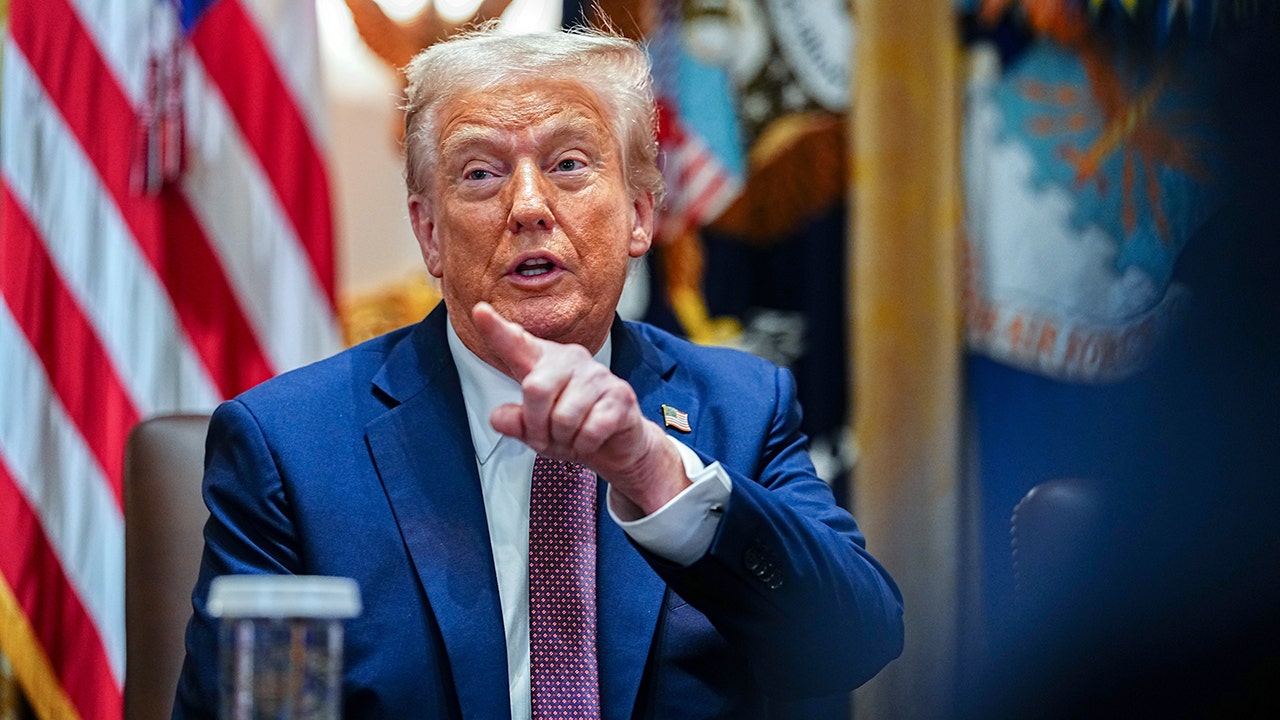Should NATO Ditch Russian Oil and Embrace Tariffs on China to End the War?

Published: 2025-09-13 15:51:03 | Category: politics diplomacy GNEWS Search
In a recent statement, former President Donald Trump urged NATO allies to halt purchases of Russian oil and implement comprehensive sanctions against Russia and tariffs on China. He believes such measures could expedite the resolution of the ongoing conflict in Ukraine. Trump's call to action comes as he criticises NATO's commitment and highlights Turkey's significant role as a buyer of Russian oil.
Last updated: 28 October 2023 (BST)
Key Takeaways
- Trump calls for NATO to stop buying Russian oil.
- Proposes 50% to 100% tariffs on China until the war ends.
- Critics highlight Turkey's role in Russian oil purchases.
- Trump claims the war would not have started under his presidency.
- Emphasises the importance of a united NATO front.
Trump's Call to Action
Donald Trump has made headlines again, this time with a fervent plea to NATO nations. He implores these allies to cease their purchases of Russian oil and align with the United States in imposing significant sanctions on Russia, alongside new tariffs on China. Trump argues that united action would not only weaken Russia's position but also expedite a resolution to the ongoing war in Ukraine.
NATO's Commitment Questioned
In his Truth Social post, Trump expressed frustration over NATO's perceived lack of commitment, stating that the purchase of Russian oil by some member countries has been "shocking." He highlighted Turkey, which has emerged as the third-largest buyer of Russian oil, trailing only China and India. Alongside Turkey, countries like Hungary and Slovakia are also reported to be purchasing Russian oil, raising questions about NATO's collective stance on the issue.
Proposed Sanctions and Tariffs
Trump's proposal includes imposing tariffs on China ranging from 50% to 100%. He asserts that these tariffs could disrupt the strategic partnership between Russia and China, which he believes is vital for Russia's war efforts. He insists that these measures should remain in place until the resolution of the conflict in Ukraine, which he claims would lead to the saving of countless lives.
The Human Cost of War
Trump has referred to the human toll of the war, citing a statistic he claims indicates 7,118 lives lost in just one week. He argues that immediate and decisive action by NATO could prevent further casualties and bring a swift end to the conflict. His emphasis on the humanitarian aspect underscores the urgency he feels surrounding NATO's response to the crisis.
Russia's Invasion of Ukraine: A Brief Overview
Following Russia's full-scale invasion of Ukraine on 24 February 2022, the geopolitical landscape has shifted dramatically. Trump has publicly stated that he would have handled the situation differently and has positioned himself as a potential peacemaker. He has met with both Ukrainian President Volodymyr Zelenskyy and Russian President Vladimir Putin, attempting to mediate discussions.
Trump's Approach to Peace Negotiations
Despite his previous claims of being able to end the war swiftly, Trump has acknowledged the complexities involved in the ongoing negotiations. He recently expressed frustration at the stalemate, indicating he is "sort of" running out of patience with Putin, especially after the Kremlin announced that negotiations with Ukraine are currently "on pause."
The Dance of Diplomacy
Trump commented on the back-and-forth nature of negotiations, suggesting that both Putin and Zelenskyy have hesitated when opportunities for dialogue have presented themselves. This reflects the intricate dynamics of international diplomacy, where timing and willingness to engage can significantly impact outcomes.
NATO's Recent Responses to Russian Aggression
This call to action comes at a time when NATO allies are on high alert following a recent incident involving Russian drones in Poland. On Wednesday, nearly two dozen drones breached Polish airspace during a coordinated aerial assault on Ukraine. This incident has heightened tensions and underscored NATO's commitment to collective security.
Evaluating NATO's Response
Trump's statement hints at a desire for a more robust and unified response from NATO member states. He argues that failure to act decisively could squander resources and prolong the conflict, which he views as detrimental to both the United States and its allies.
What Lies Ahead for NATO and the Conflict
As the situation evolves, the effectiveness of Trump's proposed sanctions and NATO's collective response will be scrutinised. The complexities of international relations and the interconnectedness of global economies mean that any actions taken will require careful consideration of potential repercussions.
Future Implications of Sanctions
Should NATO agree to implement Trump's suggestions, the implications could be far-reaching. The economic impact on both Russia and China may significantly alter the dynamics of the conflict and influence future diplomatic relations. However, the feasibility and potential backlash of such measures remain to be seen.
Conclusion
As the world watches the developments in Ukraine and the responses from NATO, the urgency for decisive action is palpable. The situation remains fluid, and the efficacy of proposed measures will depend on the willingness of NATO member states to collaborate. Will they heed Trump's call to action, or will the complexities of international politics lead to further delays? Only time will tell.
FAQs
What are the main points of Trump's proposal to NATO?
Trump's main points include halting purchases of Russian oil, imposing 50% to 100% tariffs on China, and emphasising a united NATO front to quickly resolve the Ukraine conflict.
What is Turkey's role in buying Russian oil?
Turkey has become the third-largest buyer of Russian oil, which Trump criticises as undermining NATO's collective commitment against Russia.
How does Trump view the human cost of the Ukraine conflict?
Trump highlights the significant loss of life due to the war, citing 7,118 lives lost in one week, and argues that decisive action could save more lives.
What recent events have heightened tensions in NATO?
A recent incident involving Russian drones entering Polish airspace has raised tensions among NATO allies and highlighted the ongoing threat posed by Russia.
What challenges does NATO face in implementing Trump's sanctions?
NATO faces several challenges, including differing national interests, economic repercussions, and the complexities of international diplomacy that could hinder a unified response.



